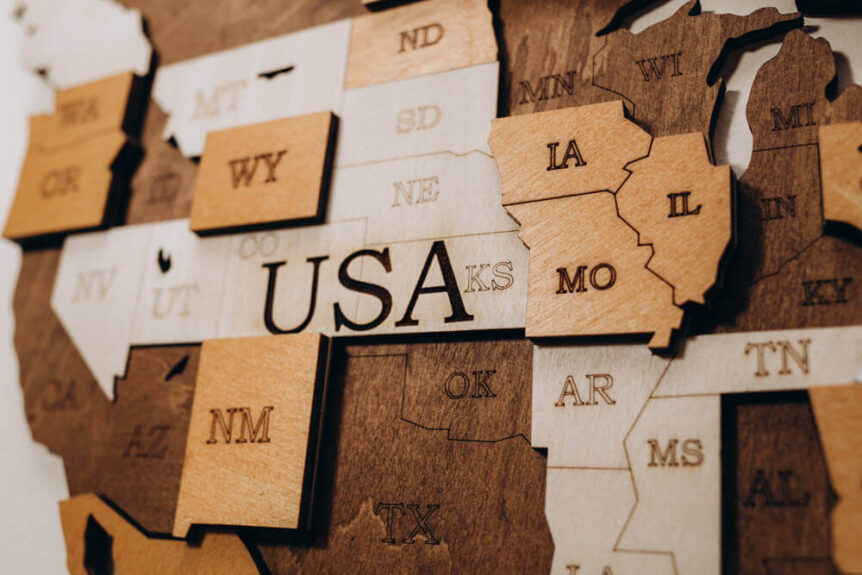Each year, state legislatures across the United States introduce new laws that affect businesses, consumers, and everyday life. As 2025 unfolds, several significant legal changes are coming into effect that demand attention. This guide explores key new state laws, their implications, and actionable insights for compliance and adaptation.
Overview of 2025 State Law Changes
From worker protections to environmental initiatives, 2025 brings a variety of impactful state legislation. Some of the more notable areas of change include:
1. Employment Law Updates
Several states have enacted laws expanding worker rights and protections:
- California:
- Minimum wage increase to $16.50 per hour.
- New rules requiring employers to disclose salary ranges in job postings.
- New York:
- Implementation of mandatory remote work accommodations for certain disabilities.
- Strengthened penalties for workplace harassment violations.
2. Environmental Regulations
States are pushing forward with green initiatives to combat climate change:
- Washington:
- Ban on the sale of gas-powered lawn equipment, effective July 2025.
- Tax incentives for businesses adopting electric vehicle (EV) fleets.
- Colorado:
- Introduction of stricter water conservation measures for agricultural businesses.
- Enhanced recycling mandates for plastics and e-waste.
3. Gun Control Legislation
In response to ongoing debates, several states have introduced new gun laws:
- Illinois:
- Requirement for universal background checks for all firearm purchases.
- Ban on high-capacity magazines exceeding 10 rounds.
- Texas:
- Introduction of a safe storage law, mandating secure firearm storage in households with minors.
4. Cannabis Legalization and Regulation
With growing public support, more states are updating cannabis laws:
- Minnesota:
- Legalization of recreational cannabis for adults aged 21+.
- Licensing framework for cannabis dispensaries and growers.
- Virginia:
- Expanded medical cannabis program, allowing for more qualifying conditions.
- Reduced penalties for unlicensed cannabis possession.
Strategies for Staying Compliant
To navigate these changes effectively, consider these steps:
1. Stay Informed
- Subscribe to state government newsletters and legal update services.
- Engage with industry associations that monitor legislative developments.
2. Conduct Regular Compliance Audits
- Assess policies, procedures, and equipment for alignment with new regulations.
- Identify areas requiring updates or investments.
3. Seek Professional Guidance
- Consult legal experts for jurisdiction-specific advice.
- Partner with compliance consultants to streamline the adaptation process.
4. Leverage Technology
- Use compliance management software to track and implement legal changes.
- Automate documentation and reporting to meet regulatory requirements.
How These Laws Impact Individuals
1. For Workers
- Expect improved workplace conditions and transparency in employment opportunities.
- Stay aware of your rights under updated labor laws.
2. For Consumers
- Benefit from enhanced environmental protections and product safety measures.
- Navigate new cannabis regulations to ensure lawful use.
3. For Gun Owners
- Understand storage and licensing requirements to avoid penalties.
- Be proactive about training and certification programs.
The Future of State Legislation in the New Trump Administration

State laws in 2025 reflect broader trends in societal priorities. With the new incoming Trump administration, we expect to see federal legislative conflicts with state initiatives that are focused on:
1. Sustainability Initiatives
States will likely introduce more measures aimed at reducing carbon footprints and promoting renewable energy.
2. Digital Privacy and Security
Emerging technologies may prompt stricter data privacy laws, especially concerning artificial intelligence and biometric data.
3. Social Equity and Inclusion
Legislative efforts will expand to address income inequality, housing access, and public health disparities.
Conclusion
Understanding and adapting to new state laws in 2025 is essential for staying compliant and leveraging opportunities. By staying informed, seeking professional guidance, and implementing proactive strategies, businesses and individuals can navigate the evolving legal landscape with confidence.
Key Takeaways:
- Monitor changes in employment laws, environmental regulations, gun control measures, and cannabis policies.
- Prioritize education, compliance audits, and professional support to adapt effectively.
- Anticipate future legislative trends and prepare accordingly.
